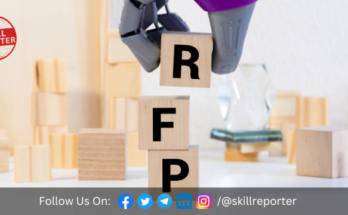As the Narendra Modi government completes two years of rule at the Centre, Minister of Minority Affairs Minister Najma Heptulla on Thursday said her goal is to bring the most backward people of the country on the path of development, only then the Prime Minister’s ‘Sabka Saath, Sabka Vikas’ dream will be realized. “Every ministry has a goal, and my goal is to bring the most backward people on the path of development, only then Prime Minister Modi’s ‘Sabka Saath, SabkaVikas’ dream will be realized,” she said.
We have to do something that has not happened till today so that they could live a successful life,” she added. Listing measures taken by her ministry in the past two years to enhance the lifestyle of people belonging to minority communities, Heptulla said there are six minorities in her ministry – including Muslim, Christian, Sikh, Buddhist, Parsi and Jain, who have their own strengths and problems, which are different from each other.
Saying the BJP’s manifesto lays stress on education and her ministry grants scholarships too, Heptulla said, “The allocations that our ministry receives, a big chunk of that is being spent on pre matric, post matric scholarships and coaching education, especially for girls.”
Our focus is also on skill development, she said, because if we teach children skills, along with their formal education, they will be able to get a sustainable job to live their life. Talking about ‘Seekho aur Kamao’ programme, she said, “We also brought about some changes in ‘Seekho aur Kamao’ and gave it a vehicle of Maulana Azad National Academy for Skills (MANAS), in which we introduced two programmes- MANAS and ‘Nai Manzil’.” “There are many children, who are dropped out, because their parents don’t have resources. We spoke to Jamia and Aligarh universities to admit them for a bridge course, and also introduced them to skill development programmes,” she added. Accusing the Congress-led UPA government of leaving out children studying in madarsas, Heptulla said, “If you modernise the madarsa education what would you do besides introducing computers, math or science to them. But, we have skilled them, they could live their live successfully.”
“We have stated a pilot project in our programme ‘Nai Manzil’ for madarsas, and we are happy that today more than 35,000 children taking training under that program. The trainers promise to provide jobs to more than 70 percent children or we will facilitate cheaper loans to them from NMDFC to start their own occupation,” she added. Appreciating the ‘Nai Manzil’ module, she said, “The World Bank liked the ‘Nai Manzil’ module and provided us 15 million dollars loan and recommending the module in madarsas of Africa and South-East Asia so that they can also introduce skill development in their madarsas.” Pointing out her government’s focus on girls, Heptulla said, “We are more focused on girls, we provide scholarships to 46 percent instead of 33 percent girls. Besides, we provide them special fellowship in Classes 11 and 12 to raise their standard and they could move ahead.”
Apart from that, with an aim to enhance traditional skills of weavers, carpenters, and other art and craft workers, the government has stated a USTTAD (Upgrading the Skills and Training in Traditional Arts/Crafts for Development) Scheme, she said. “Under USTAD, we have launched a website and have collaborated with ShopClues to sell their products. We are also standardizing products, because the goods which are sold on internet should have certain standard. We want to produce standard goods so that people could understand Indian art and craft, for which we have three knowledge partners – National Institute of Fashion Technology (NIIFT), National Institute of Design (NID) and Indian Institute of Packaging (IIP) – because the goods we sell abroad, their packaging should be good,” she added. These are some of the programmes for self-reliance, she said, besides the government has initiated a digitization programme for waqf properties. “Though most of the waqf properties are under various state governments, we are motivating them for digitization of those properties. We have also provided money to waqf boards for digitization, modernization and legal aid so that they can get their properties released from illegal occupation,” she added.
Note: News shared for public awareness with reference to the information provided at online news portals.



